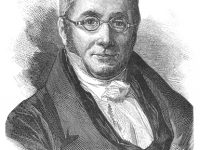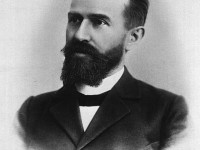Augustine Pyramus de Candolle and the Biological Clock
On September 9, 1841, Swiss botanist Augustin Pyramus de Candolle passed away. Candolle originated the idea of “Nature’s war”, which influenced Charles Darwin and the principle of natural selection.[3,4] Furthermore, he recognized that multiple species may develop similar characteristics that did not appear in a common evolutionary ancestor; this was later termed analogy. During his work with plants, de Candolle noticed that plant leaf movements follow a near-24-hour cycle in constant light, suggesting that…
Read more









